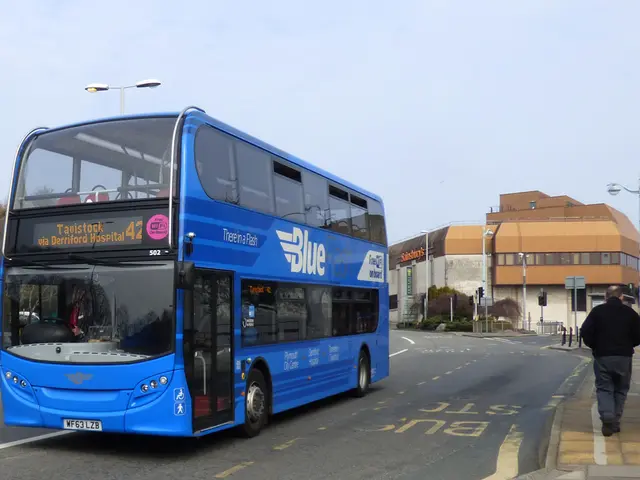Inquiries directed towards Rebecca Rumbul, Research Director at mySociety
In the digital age, a new movement has emerged, one that focuses on empowering citizens through the use of technology - the civic tech movement. This loosely connected sphere of digital activity is dedicated to developing tools that aim to reduce the distance between individuals and their public institutions.
One such tool is "TheyWorkForYou", an application that uses open government data to increase democratic accountability and transparency. The heart of this platform is the "people and places" database, which contains structured data about politicians, linking them to the places they represent, their parties, and the roles they perform. This database is powered by Pombola, a system that also includes a database for the "words they speak", storing parliamentary transcripts with speeches ascribed to individual speakers.
"TheyWorkForYou" is not just a static database, but a dynamic platform. Users can search the entire database for a specific keyword or phrase, browse recent debates, or find their elected representatives based on their location. The platform also integrates with major social media channels, allowing users to comment on and socially share individual pages.
Another notable civic tech tool is FixMyStreet, a platform for reporting nuisances in neighbourhoods. It uses MapIt technology to pinpoint the exact location of the issue, making it easier for local authorities to address the problem. The conversion of documents into structured information in FixMyStreet's various codebases is done through multiple functions and scrapers.
The rise of the Internet has led to a shift in democratic information flows, with anyone able to be a broadcaster or a consumer. However, this web-based format of information dissemination has also given birth to the fake news phenomenon. The tension between open data and privacy is a significant challenge in the development of civic technologies.
Governments play a crucial role in supporting civic-tech technologies by providing legal clarity and backing local and regional efforts. However, they face challenges such as lack of unified policy responses, the international scope of big tech beyond national jurisdiction, and the need for regional coordination rather than only national actions. In many African countries, governments are lagging behind in understanding and regulating digital tools effectively.
The civic tech movement tends to focus on issues of democracy, open government, international development, information rights, and public administration. The rise of data-driven applications, such as "TheyWorkForYou" and FixMyStreet, also presents challenges, including data privacy, lack of good boundary data in developing countries, and understanding user behaviour.
Despite these challenges, the potential benefits of civic tech are immense. By creating more efficient platforms, bridging the gap between civic tech and government IT departments, and enabling the production of useful tools, governments can support the civic tech movement in fostering a more informed and engaged citizenry. Efforts have been made to make platforms like "TheyWorkForYou" more accessible to a wider user base, but there is still work to be done to ensure that everyone, regardless of their background, can participate in the democratic process.
Read also:
- Experiencing Life's Variety Firsthand: Gaining Insights from Life's Broad Spectrum of Experiences
- Generous Gift of AED 33 Million Saves Lives: A 14-year-old Boy, Along With 59 Others, Receives a Second Chance
- Seven Effective Methods to Enhance Business Productivity
- Nature's Sickness: A Look at Ailing Vegetation







